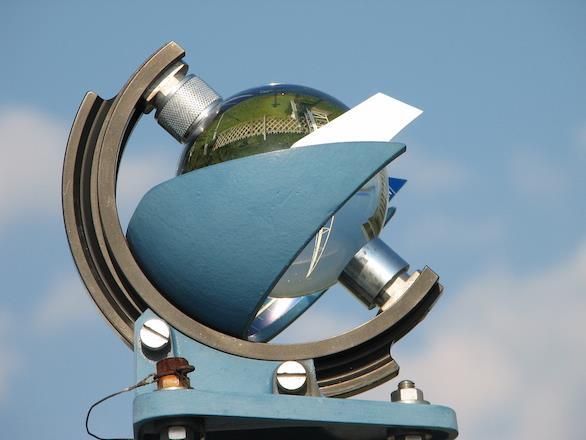In despair the government replaces the entire NBN with a national system of heliographs flashing fibre optic signals to mirrors on tall buildings. The share price of Foxtel doubles in a day. Image: Heliograph (Lisca).
As sure as the Sun will rise from the East tomorrow we’ll soon enough be rushing out buying 8k televisions, the latest technology upgrade bringing even more ultra-high definition pictures to our screens. When the original high definition TV’s went on the market they were so expensive it took years before they became commonplace in Australian homes. These days more than 90 percent have HDTV’s in some form, and prices have dropped dramatically.
Yet, for many consumers of film and television content our dud NBN means upgrading to the latest HDTV is pointless.
Half the homes in the US are expected to have 4K screens by the end of this year, and it’s a fair bet we won’t be far behind them in our adoption rate. We can be equally confident that widespread 8K adoption will happen faster here than you might think. All the major television manufacturers will have 8K models available this year.
Production companies are already creating content in expectation of an 8K market. A Spanish-based video-on-demand service, Rakuten TV, says it will be steaming 8K by the end of the year, with plans to operate in 30 European countries.
More than nine million Australians have subscribed to SVOD (subscription video-on-demand), and the global trend is towards BVOD – broadcast video-on-demand. Our ABC led the field here with its highly popular iView. All the networks now have ‘catch-up’ services requiring an Internet connection.
However, for a large percentage of the population watching even 4K via the Internet will be a challenge, while viewing 8K will be impossible. These days, having multiple screens being watched at the same time is fairly standard in most homes. Simultaneous 4K, much less 8K streaming? Forget it, unless you have a very fast and reliable broadband connection.
I have written regularly for several years now about the troubles facing millions of NBN customers.
This week we learned that we’ve dropped another three places on global broadband speed rankings. Not that long ago we were placed 50th, now we are at 62. What that means is we are being left behind in an emerging digitally-enabled world.
As is well documented, under pressure from then prime minister Tony Abbott, his communications minister Malcolm Turnbull took flawed advice from a bunch of his so-called mates and abandoned the original NBN model using state-of-the-art optical fibre. Their argument, now clearly discredited, was we could build the NBN quicker and cheaper with existing phone lines and pay-television cables – the ‘multi-technology mix’ model.
Claiming that a rise in ‘video piracy’ was affecting their revenue streams – something that was never substantiated – the international content distributors convinced our government to introduce Internet site-blocking laws a few years back. While the evidence of these restrictions working is flimsy it points to the power of lobbying. Certain industry players donated large sums of money as they quietly worked away behind the scenes securing cross-party support for a system that was widely opposed by the tech sector as ineffective.
So, why has our film and television industry failed to take up the fight for a 21st Century NBN – one capable of handling 4K, 8K and beyond?
Ironically, with a new CEO and a re-jigged business model more reliant on Internet delivery, Foxtel will be one of the biggest losers unless something is done. Ironic, because its owner, News Corp, was one of the last media outlets to regularly report on the problems plaguing the NBN. For quite some time The Australian appeared to be actively opposed to the NBN, even attacking Internet Australia – the NFP peak body representing Internet users – which was demanding #BetterBroadband.
During my stint at the helm of Internet Australia, and since, my constant call has been for a bipartisan approach to fixing the NBN. A growing chorus of voices from within the telco and IT sectors has ensured that politicians are well aware of the need for action.
Labor has committed to looking for solutions. However, we really need to make this a non-political issue. For that to happen more people and more organisations directly affected by the NBN’s poor performance need to be pressuring both sides of politics.
So why is the film and television sector not demanding something be done? How long will it take before it becomes clear that Australians are becoming second class citizens when it comes to the consumption of film and television content?
———-
This article is reproduced with thanks from Laurie Patton’s website, The Lucky General.





